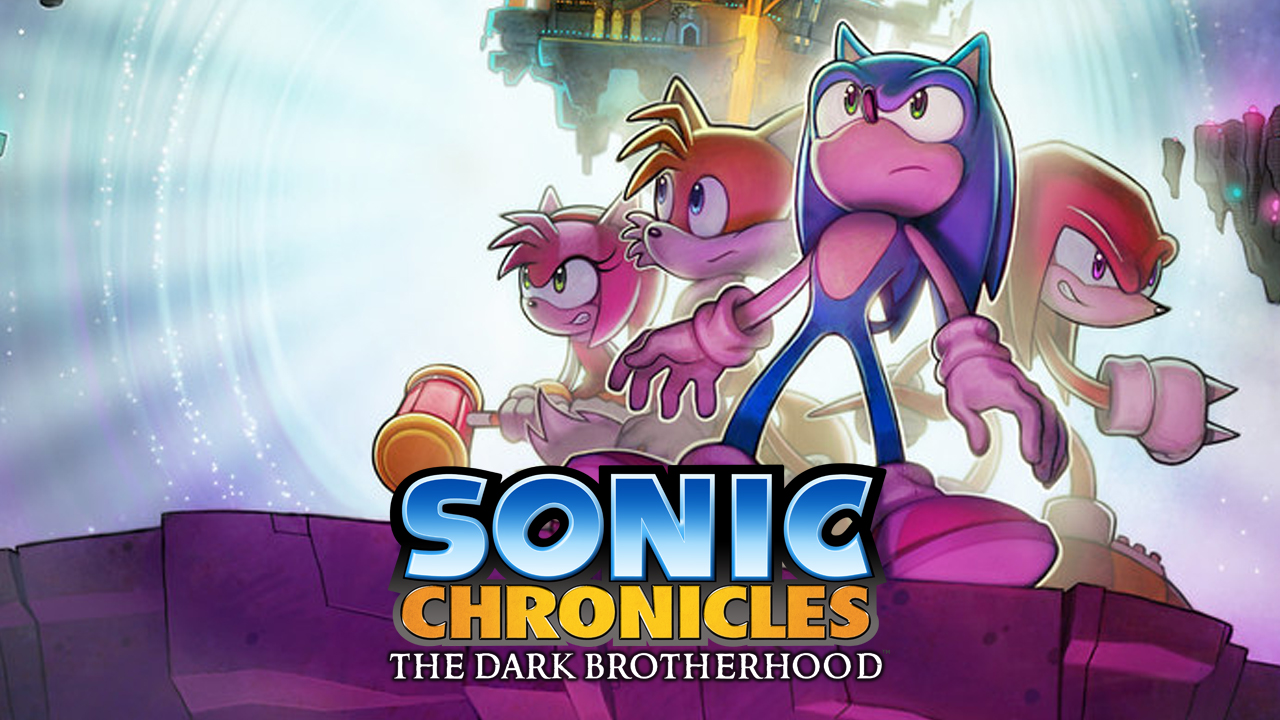
Inside Ken Penders's Copyright Lawsuit Against Sega, EA
The lawsuit Ken Penders filed against Sega and Electronic Arts alleges both direct and indirect copyright infringement by both companies, and unfair competition. But perhaps most damning in the complaint is the revelation that employees of Sonic Chronicles developer BioWare, a subsidiary of Electronic Arts, allegedly approached Penders for help on the game.
This, according to the 18 page complaint obtained by TSSZ on Thursday through public record. Ten “John Does” are also named as defendants, with the caution that the plaintiff does not know their true identity, be it corporate or individual, but nevertheless, according to the suit, “have infringed Penders’ copyrights, have contributed to the infringement of his copyrights, or have engaged in one or more of the wrongful practices.“
Penders is seeking unspecified monetary damages in the lawsuit from all parties, along with attorneys’ fees, and other damages deemed appropriate by the court. Penders is also seeking a jury trial.Much of the initial Facts Common to all Causes of Action read a lot like Penders’s defense against Archie Comics, which is currently seeking a declaratory judgment as to who owns the work he contributed to the ongoing Sonic comics, and reaffirms many of his contributions to the comics are presently registered with the US Copyright Office. In paragraph 23, attorneys for Penders write that the writer/artist was at times not paid by the Archie even after submitting ideas that were further developed:
23. Archie did not pay Penders for several projects he created and submitted to Archie for consideration on both Sonic The Hedgehog and the core Archie titles, even after giving Penders approval for further development.
Paragraphs 33 and 34 reaffirm Sega was notified by the US Copyright Office of Penders’s intent to register, and never responded.
The corner’s turned beginning at paragraph 38, when attorneys for Penders outright accuse the defendants of infringing “upon Penders’ exclusive rights by creating, publishing, distributing and selling a video game titled “Sonic Chronicles: The Dark Brotherhood” (the “Infringing Game”) embodying elements of the Works without permission or license from Penders,” according to the complaint.
The complaint provides a screenshot from a promotional video BioWare allegedly used to promote Chronicles before release. Attorneys for Penders in the complaint argue that the video’s contents demonstrated “the breadth and richness of the Sonic universe, specifically mentioning the comic books Penders was largely responsible for,” adding that a display for issue 14 of the Sonic comic, a portion of which falls under Penders’s copyright claims, was featured.
In Paragraph 41, attorneys for Penders claim the following:
Employees of EA’s BioWare division approached Penders during development of the Infringing Game and inquired of Penders whether he might be available to assist them in the development of the Infringing Game.
There is little explanation beyond that, and no additional exhibits or evidence were disclosed to support that claim. But Attorneys for Penders did afford in the complaint a side by side comparison between copyrights Penders holds, the specific work in question as they relate to those copyrights, and characters and settings in Chronicles that the plaintiff believes are infringing. Among the highlights is the claim Shade infringes on Julie-Su, the claim of The Dark Brotherhood infringing on both Brotherhood of the Guardians and The Dark Legion, and The Twilight Cage infringing on Penders’s The Twilight Zone inside the comics.
“The Infringing Game bears a substantial similarity to the Works, because the total concept and feel is similar, if not identical, between the story and characters in the Infringing Game and the Penders’ Works, and because Sega has created a genuine documented confusion in the marketplace as to Penders’ actual involvement with the Infringing Game,” the complaint reads in part. “Reviewers and players have stated their belief that the Infringing Game was adapted from or heavily influenced by the Archie comic book series, including the Works and other creative works that Penders developed and produced.”
In short, if you’ve ever had an inkling of deja vu between pieces of Chronicles‘ characters and story and Penders’s past work, you may in fact be strengthening the case against Sega and EA. That said, no supporting documentation for the above claim was filed to complement the complaint.
Attorneys for Penders claim the approval process Archie Comics had with Sega renders the latter liable for damage, because aside from Sega publishing Chronicles, Sega also had to approve work inside the comic, including Penders’s, before any issue went to publication–giving cause for Penders to believe Sega was well aware of him and his contributions.
Both Sega and EA have 21 days from the time they are formally served a summons to file a response, both with Penders’s counsel and with the court. Interestingly enough, that would pinpoint any elevation on the matter to around the time of Sonic’s 20th anniversary. We will keep tabs.



![[ID: L8z0JO1C_8s] Youtube Automatic](https://lastminutecontinue.com/wp-content/uploads/id-l8z0jo1c8s-youtube-automatic-360x203.jpg)
![[ID: Qa1pfs86Ucg] Youtube Automatic](https://lastminutecontinue.com/wp-content/uploads/id-qa1pfs86ucg-youtube-automatic-360x203.jpg)
![[ID: j3AlSEz8c5s] Youtube Automatic](https://lastminutecontinue.com/wp-content/uploads/2025/01/id-j3alsez8c5s-youtube-automatic-360x203.jpg)